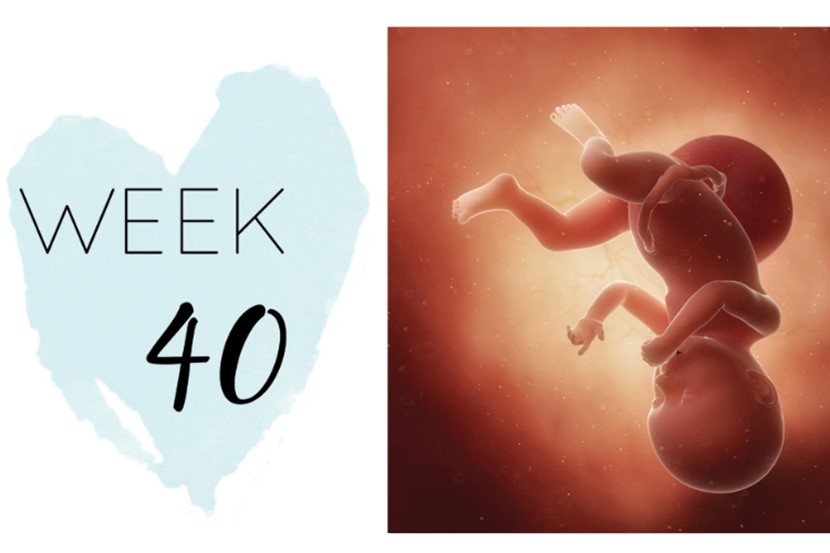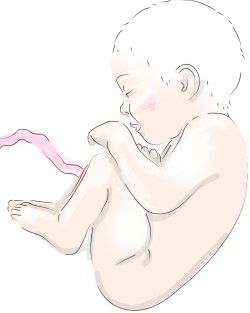40 Weeks Pregnant in NZ – What can symptoms can you expect?

Only 5 percent of babies arrive on their due date, and 30 percent of pregnancies go past 40 weeks, so don't be worried if your baby doesn’t arrive perfectly on time. Most mums worry that they won’t recognise the signs that their labour has begun, but you will know. Just remember your breathing and make an effort to relax your entire body. Think about every muscle from your head to your toes and relax them one by one.
Pregnancy symptoms at 40 weeks
You will probably be uncomfortable at present; the baby is full size, and putting pressure on all your internal organs. Alongside peeing constantly, you might be a bit short of breath, constipated, and feeling…. Wet. Your boobs may be leaking, so nursing pads are ideal to have (and in your hospital bag, if not already packed). You may also find your knickers wet—waters breaking aren’t always the Hollywood-esque ‘gush’ of water you may expect. If the baby is engaged and close to the pelvis, they may be stopping the flow, your waters will slowly leak out.
You’ll likely be feeling sore if your baby is in position and has dropped. Your baby’s head is pushing on your pelvis. If you experience diarrhoea, this is a sign that labour may be very soon. You may also be feeling more leg cramps and spasms, and insomnia. There’s not much to do about these, and at this stage of the pregnancy, there’s nothing recommended to take. A gentle massage or warm bath may help.
Also, keep up some form of exercise- while a walk may be a thing of the past (although this can help get contractions going), a gentle swim, some yoga, or gentle seated stretches can be relaxing and pleasant.
Braxton Hicks contractions at 40 weeks
If you’ve been having Braxton Hicks contractions, you might be able to tell these apart from the real contractions. Birth contractions will increase in frequency and severity, whereas Braxton Hicks are inconsistent or subside when you change position.
Your baby at 40 weeks pregnant
Any day now your baby will be making an appearance. Your baby weighs about 3.6kg. From head to toe he or she is about 48 to 52cm and we’re sure you can’t wait to meet them. Most of the vernix caseosa that was on baby's skin to protect is, has now come off. However, when baby is born there may still be some, usually around his head. This is the slippery substance. This can just be cleaned off with a soft towel.
Baby movements at 40 weeks
Your baby should still be moving. He or she may be moving less—after all, there’s a lot less room in there for cartwheels—but you should still be feeling about 10 kicks, wiggles or flutters an hour. If you noticed decreased movement, speak to your healthcare provider immediately.
Will I be induced at 40 weeks?
Unless there’s a good medical reason to do so- and there are many- you won’t be induced just yet. While most practitioners won’t let a pregnancy proceed past 42 weeks, the serious induction discussions won’t start for a few more days. Do raise this with your midwife or obstetrician if you have concerns.
What should I eat at 40 weeks pregnant?
When you’re this far along into your pregnancy, you’ve probably figured out what, if anything, upsets your stomach. Because digestion is slower, acid reflux and indigestion are common, but diarrhoea is a sign of impending labour. Your body is in a state of flux. At this point, focus on eating small meals with fruit, vegetables, whole grains and lots of liquids- make sure you’re hydrated. If you’re feeling nauseous or have diarrhoea, it’s time to put that greasy feed aside.
Labour can be long and exhausting (or short and exhausting) so make sure you’ve got some snacks prepared for once labour starts, if your hospital/ medical team allow. Simple carbs, jelly, popsicles, lollies, nuts, clear broths, fruit juice with no pulp, and ice chips can be great labouring foods.
What can I do to make labour start?
There’s no real way to kick-start labour for sure, but you can try:
- Walking: A walk around the block might start things up.
- Acupuncture: If you have a trusted acupuncturist, you may try this although research has mixed reviews.
- Sex: No guarantees, but if you’re comfortable getting jiggy with it, a study found that pregnant women having sex after 36 weeks were less likely to go past their due date.
- Nipple stimulation: This is proven to work- science has shown this can help to start labour. However, it can cause rapid and strong contractions and could harm your baby’s well-being, so only do this under advice of your medical team.
- DO NOT take castor oil: It increases your chance of diarrhoea (during birth too) and it does not help induce labour.
What are the symptoms of labour?
These are different for everyone.
- Slow leaking or gushing amniotic fluid
- Contractions that become more regular and intensify
- Diarrhoea or vomiting
- Ripened/ dilated cervix
- Cramps
- An urge to go to the toilet (different from the constant pee breaks)
- Bloody ‘show’ when the mucus plug of the cervix comes away
- Lower back pain
When should I worry at 40 weeks pregnant
Always call your doctor if:
- Your baby stops moving or kicks decrease significantly
- Your water breaks
- Your water breaks and it’s brown, or green. This is meconium and it can be dangerous for your baby’s wellbeing
- You experience a severe headache, swelling, double vision. This could be pre-eclampsia.
Things to consider:
☙ Don't forget - if you are ever concerned about something, call your obstetrician or midwife: it's always better to be safe than sorry.
☙ Clothing to take to the hospital: You and baby will be the subject of a lot of photos over the next few days so think about what you want to be wearing in the pictures that will last a lifetime. It's also a nice idea to take a nice outfit for you to wear home from the hospital to make you feel good about your post baby body.
☙ Experiment getting into different birthing positions to decide on which one suits you best.
☙ Involve your partner in the process. Read OHbaby! with him and tell him about how you feel. Share your hopes and plans for baby.
| << Week 39 | Week 41 >> |

